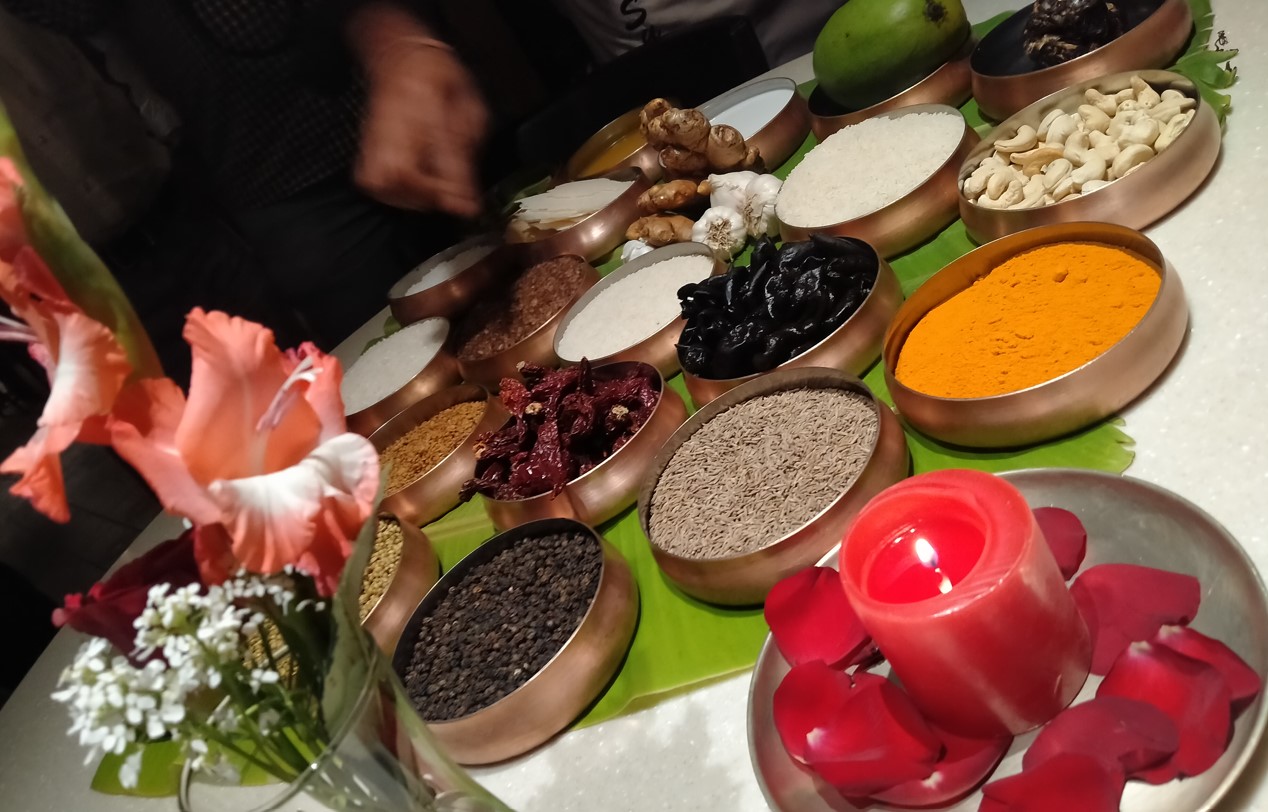By Nivi Shrivastava
If there’s one thing that the pandemic has taught us is health precedes everything; and, as a result, the “mindful and mouthful” philosophy has managed to percolate into our kitchens and affect our eating choices. While bourgeois food terms like artisanal, boutique, and hydroponic accentuate modern menu cards, planet-loving millennials scoop out a guilt-free bite to amp up their Insta-worthy meals.
As eating out is all the rage again, food trends inspired by rainbow colours, eye-catchy presentations, and innovative contrast combinations are major crowd-pullers for Gen Z and millennials, who usually don’t hesitate to pay for top-quality experiences. For the uninitiated, decoding modern menus at any fancy eating outlet could be a daunting affair with several specifications and dietary information. For vegans, menus are most seasonal and largely plant-based with homegrown herbs. While the non-vegetations look for considerate selections of meat, fish, and dairy (usually the milk is A2 grade lactose-free). The newest addition to the basket is hydroponic organic farm-produced fruits and vegetables grown in controlled, pesticide-free environment using water and limited soil.
All about artisanal:
By definition, an “artisanal” ingredient indicates a completely hand-crafted product while a “boutique” wine or cheese means customized or bespoke limited edition products for a niche market. The term artisanal has traditionally been used to describe meats, cheeses, breads, vinegars, and beverages, and in the modern context it is used to describe a food dish that’s associated with fresh, non- or minimally processed, and often, locally sourced ingredients. Ishan Pansuria, Founder of Toska Chocolates, a homegrown food brand that makes artisan chocolate, gives a lowdown on this trend. He says, “You can call it craft chocolate or bean-to-bar chocolate, and it basically describes a fancy, higher-end chocolate with incredible flavors and very few ingredients (mostly just cocoa and sugar). We use single-origin cocoa beans that allow for the subtle flavors of the chocolate to shine. Flavors of these chocolates vary wildly and range between fruity, floral, earthy, herbal, spicy, tart, etc. No Preservatives, oils, or artificial flavoring is used in making these chocolates and that’s why it is handcrafted and a small-batch product. Small batch doesn’t mean the capacity is low but it simply means we make small batches so that we give 100% to each bar that we make using the best quality ingredients.”
However, the main challenge to creating an artisanal bar is sourcing the right cocoa beans, and once that is done there’s no problem. Pansuria informs, “Homegrown products are made with no chemicals and only with honest ingredients. We work with farmers directly, and there is no middleman involved to encourage fair trade. Using a certified process that is followed by cocoa farmers, buyers, and chocolate manufacturers, it is designed to create sustainable incomes for farmers and their families. The pandemic was actually a blessing in disguise as people started trusting homegrown brands more than ever. They realized the difference between imported products and homegrown products.”
Healthy indulgence:
As the love for local and forgotten ingredients makes a strong comeback, the health factor plays an important role. For many youngsters, healthy and fresh food is a bigger priority than before as they love to discuss their eating and fitness habits on social media. With a general rise in awareness around sourcing, carbon footprint, and sustainable practices, people want to know how the products are made; where ingredients come from; how they are sourced, and what manufacturers do to care for the environment and their community.
Chef Prasad Metrani, Director Culinary at Conrad Bengaluru, believes the younger generation doesn’t like to cook three times a day to eat. “They want easy, on-the-go, ready-to-eat food. The recent food fads for organic foods and healthier dishes add value and nutrition to their diet. Super foods and forage ingredients like lentils, millets, Avocado, Quinoa, organic meats, organic vegetables, berries, mushrooms etc are very popular these days. We use fresh black turmeric, Monterosa tomatoes which are organically grown in Bangalore by Rewet Farms. Our vegetables are mainly sourced from Doddballapur, the nearest village to Bangalore, so that vegetables are used with maximum nutrients and freshness. We are increasing the usage of forage ingredients like local Mulberry, Moringa, organically grown local green leaves. Organic Meats and local Seafood’s like Kadaknath Chicken, Local Betki, Local seabass, Crabs, etc from nearest shores are also quite popular on our menus.”
Return to the roots:
The rise in demand for homemade preserves, hand-crafted cheese, chocolates, pickles, and vegan milk might be definitely a good sign for small and medium producers, but the big business comes from mass popularity. Post-pandemic, the trend of conscious consumption is getting popular in the food business as well. Moreover, a lot of homegrown and organic products are in demand, and this will continue for a long time as it assures quality, according to Chef Noah Barnes, Co-Founder of Miss Margarita by Arriba in New Delhi. At his restaurant, Chef Barnes curates a menu that emphasizes slow-cooking techniques that preserves authenticity and enriches the flavour experience. This method has been prevalent in India for a long time and is known to enhance the flavour quotient. The slow cooking techniques are used by many restaurants for their signature dishes and he hopes that it will be bigger in the coming years.
He adds, “Another trend that has caught on is experimenting with spices. A lot many are now trying out different spice portfolios that are – habanero, chipotle, etc. Mexican cuisine is all about spices and we directly source spices like Habanero, Chipotle, Guajillo, Pasilla from Mexico. Other homegrown substitutes that we use are Kashmiri Chillies, Resham Patti and more. We source our produce from local vendors wherever possible. Mexican cuisine is native to India, with ingredients like corn, tomatoes, cilantro, rajma, etc, we procure these resources organically. Hot sauces and fermented products are particularly organic which we procure from the local farmers.”
(To reach the author, write to [email protected])


